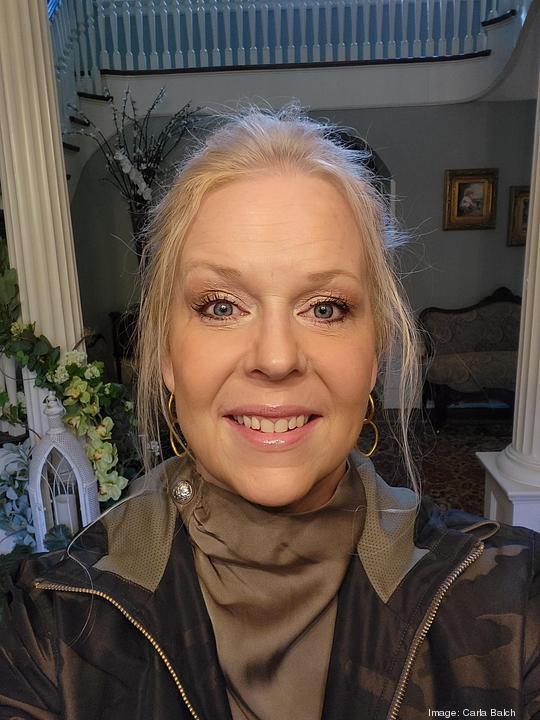
In August, Forbes contributor Seth Joseph wrote a piece about electronic health care records that was tellingly titled “The EHR Is Dead. Long Live The EHR Platform.”
Once considered a potential savior for the health care industry — and a logical shift away from paper records — EHRs have instead become an antagonist, one that’s caused splitting administrative headaches for hospitals and physicians. In a 2020 survey administered by the Journal of Medical Internet Research, 74.5% of physician respondents cited EHRs as a contributor to burnout.
And in 2021, the Journal of Medical Economics proclaimed that physician burnout had reached a crisis point, with EHRs listed as a primary cause.
Part of the frustration stems from an inability for different hospitals and physicians to share data. As Joseph noted in his article, “We have converted paper records to digital ones, but a lack of interoperability means the data itself remains trapped in silos.”
The Memphis startup Spesana, however, is looking to help change this situation — and its efforts continue to attract new investments.
More funds, and a larger team
Spesana provides an aggregated medical record to ensure cancer patients gets the best, most efficient care possible, based on their overall needs. Its platform melds molecular diagnostic reports with EHRs, prior authorization, payer processes, approved drugs and pathways, clinical trials, clinical literature, and scheduling.
Because it puts a cancer patient’s records and information from multiple clinical offices under one platform, the administrative workload for physicians and hospitals can be lightened significantly.
And as Spesana CEO Carla Balch is quick to emphasize, the technology isn’t just for oncologists, since “a cancer patient is never just a cancer patient.”
“Spesana is for all physicians in all settings,” she said.
Since its inception, the startup has continued to gain momentum. In July 2020, it raised $1 million in seed funding, and in May 2021, it raised another $2.97 million. In the third quarter of this year, the company is set to kick off another round, which Balch estimates will double that.
Spesana has also grown its employee count. It now has 21 employees, and recently added longtime industry veterans to its leadership team. John Verniero — the former Integra PrecisionQ president of Florida-based Integra Connect — is Spesana’s new chief business officer. Court Veach — the former programs development manager of Washington-based EndoGastric Solutions — is its new VP of Sales. And Allen Rasoul — cofounder of Memphis-based One Surgical Inc. — is VP of Strategic Business.
“We’ve got so much business,” Balch said, “that we have to scale in a hurry.”
She declined to provide a specific number of clients but said Spesana’s value has increased by “about 400%." And Balch detailed the launch of its new prior authorization product, Authorize, which she expects to aid both physicians and their patients.
New year, new offerings
Prior authorization is the management process used by insurance companies to determine whether a prescribed product or service will be covered, and, like EHRs, it can frustrate doctors.
The American Medical Association (AMA) surveyed 1,000 practicing physicians about impacts of prior authorization on patient care. More than 90% said it had a significant or somewhat negative clinical impact, and 86% said the administrative burden associated with it was “high or extremely high.”
Spesana’s Authorize, however, will look to make the process smoother, while also helping to deal with insurance eligibility and patient financial responsibility. Typically, Balch explained, these areas are pain points for health care providers. For example, physicians often don't have visibility into insurance denials, or categorized reasons for them. And these denials can stop or delay treatment — potentially wrecking a surgery schedule.
"Authorize is built using technology and integrations to bring financial blind spots into view," she said. "When a busy health system can prevent prior authorization denials, the schedule for patients and providers is optimized. We like it because patients get treated sooner."
According to Balch, it has the potential to increase the number of new patients by 25%, while relieving the number of claims held up by prior authorization by 22%.
Authorize isn’t the final offering that will come from Spesana, either. In 2023, it’s set to launch a patient-facing portal. The startup's tech is currently only used by physicians, so the patient portal can help guide people after they receive a diagnosis.
“Imagine that you have just found out you have some sort of disease,” Balch said. “The last thing we want you to do is Google search that.”
Patients can go to the digital platform, enter what they know about their diagnosis, and list their doctors. Spesana will create an aggregated medical record for them, and then help find the best match of physicians and treatments.
“You can say, look for doctors, who treat patients just like me, within 20 miles with good clinical outcomes, who take my insurance,” Balch said.
The offering is also expected to have another benefit for patients: It will be free.
“We will never charge a patient anything,” Balch said. “That patient access to Spesana will always be free."









